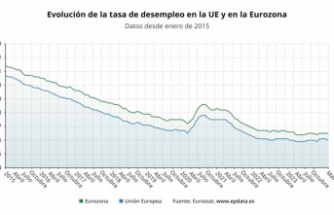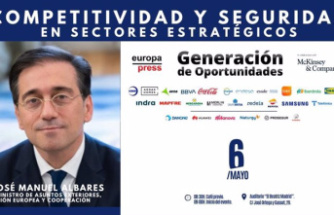Mayor Bill de Blasio’s “new front line in the battle to keep New York City affordable” is jobs, as he said in his State of the City address last week. But in his quest to create more of them, he should be mindful not to hurt the private sector he’s purportedly trying to help.
A case in point is the 300,000-square-foot facility in Sunset Park, Brooklyn, that the mayor announced last week will be used to help manufacturers grow and hire. The city says the $136 million investment will lead to 1,500 permanent fashion, film and television jobs, helping the mayor achieve his goal of creating—over more than a decade—100,000 positions that pay $50,000 and up. That seems eminently doable. After all, since he took office, the private sector has created nearly three times that amount—a record gain of 280,000.
The question for me is whether the proposal supports or competes with private-sector companies already operating in film and television. For garmentos, it’s clear that subsidized maker space is needed, just as food manufacturers and companies in the construction supply chain need space if they are to build their products nearby.
article continues below advertisementIt’s less clear to me why the city is subsidizing the film and television industry, which has grown like gangbusters into a $12.5 billion sector in the dozen years since the state tax credit—now $420 million annually—was implemented.
Julie Menin, commissioner of the Mayor’s Office of Media and Entertainment, said that despite property owners’ willingness to build large stages here—which they are currently doing—few have the kind of room offered by the vast Sunset Park facility. “Right now we are getting calls from productions that want to film in New York, but honestly there isn’t enough space,” she said, adding that the Sunset Park soundstage will “equal 5% of existing soundstage stock—and we need it.” It’s important to note, Menin said, that a company will be selected through competitive bidding to operate the stage.
But the Sunset Park project may ultimately undermine the film and TV industry by fueling criticism that it is being lavished with things it can do without. And that is ironic because the one freebie that executives deem essential is the tax credit. Without it, they say 80% of the city’s production work will dry up. “Why is the city intervening in an area where it’s not needed?” one industry source asked. “If you overdo it, it actually hurts the industry.”
Mayor Bill de Blasio’s “new front line in the battle to keep New York City affordable” is jobs, as he said in his State of the City address last week. But in his quest to create more of them, he should be mindful not to hurt the private sector he’s purportedly trying to help.
A case in point is the 300,000-square-foot facility in Sunset Park, Brooklyn, that the mayor announced last week will be used to help manufacturers grow and hire. The city says the $136 million investment will lead to 1,500 permanent fashion, film and television jobs, helping the mayor achieve his goal of creating—over more than a decade—100,000 positions that pay $50,000 and up. That seems eminently doable. After all, since he took office, the private sector has created nearly three times that amount—a record gain of 280,000.
The question for me is whether the proposal supports or competes with private-sector companies already operating in film and television. For garmentos, it’s clear that subsidized maker space is needed, just as food manufacturers and companies in the construction supply chain need space if they are to build their products nearby.
It’s less clear to me why the city is subsidizing the film and television industry, which has grown like gangbusters into a $12.5 billion sector in the dozen years since the state tax credit—now $420 million annually—was implemented.
Julie Menin, commissioner of the Mayor’s Office of Media and Entertainment, said that despite property owners’ willingness to build large stages here—which they are currently doing—few have the kind of room offered by the vast Sunset Park facility. “Right now we are getting calls from productions that want to film in New York, but honestly there isn’t enough space,” she said, adding that the Sunset Park soundstage will “equal 5% of existing soundstage stock—and we need it.” It’s important to note, Menin said, that a company will be selected through competitive bidding to operate the stage.
But the Sunset Park project may ultimately undermine the film and TV industry by fueling criticism that it is being lavished with things it can do without. And that is ironic because the one freebie that executives deem essential is the tax credit. Without it, they say 80% of the city’s production work will dry up. “Why is the city intervening in an area where it’s not needed?” one industry source asked. “If you overdo it, it actually hurts the industry.”
A version of this article appears in the February 20, 2017, print issue of Crain's New York Business as "Good intentions gone bad".
Sign up for our FREE daily email newsletter. A summary of the day's top business and political headlines from the newsroom of Crain's New York Business.
More Newsletters ›
Our editors found this article on this site using Google and regenerated it for our readers.













